'One of the most arbitrary punishments ever visited upon a jockey'
Steve Dennis on the ban that shocked racing and demonised a young jockey
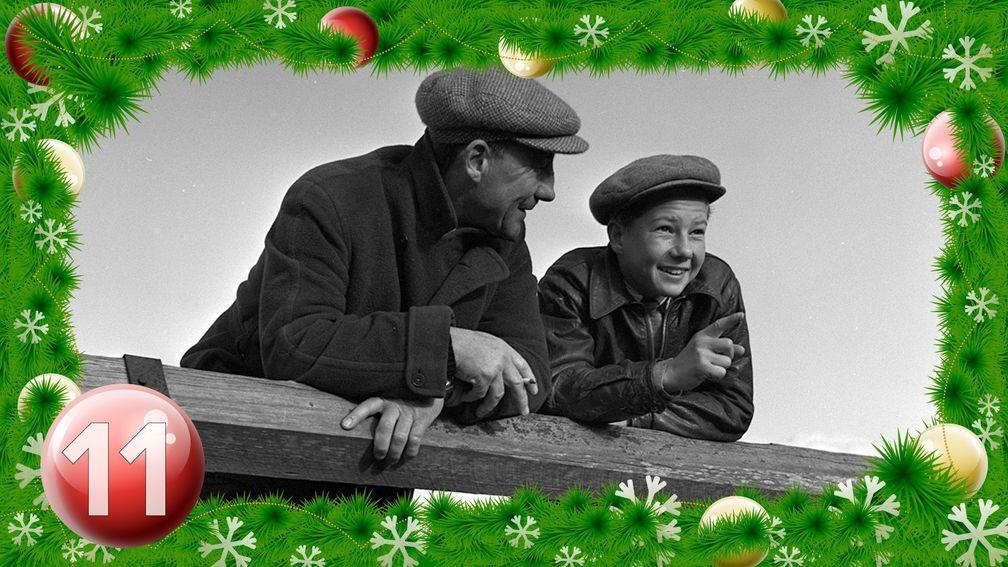
On the 11th day of Christmas, Racing Post gave to me . . . the extraordinary tale of Lester's ban – first available to Members' Club subscribers on June 11, 2018. Click here for more information and to sign up
Teenagers are noted for their frequent orations about life not being fair, but now and again they should be taken at face value. During Royal Ascot week in 1954 the incomparable Lester Piggott – then a fresh-faced, as yet unstoried 18-year-old – had justification for bemoaning his lot after suffering one of the most arbitrary punishments ever visited upon a jockey.
Lester, in his mid-career majesty, had a swagger about him that brooked little argument. The late Bryn Crossley, a weighing room contemporary, said of the great man that "one of the grandest sights in racing is to see Lester hauled before the stewards. He goes in there like Clint Eastwood and he comes out like Clint Eastwood. Lester doesn't give a monkey's".
Pale rider indeed, his metier in monosyllables, his world-weariness enriched by a wide seam of wry humour. At this stage of his career, though, he was not Clint Eastwood but a boy among men, lacking the heft and hauteur of his later years. That allusion to the stewards is apt, for if Lester would behave like Eastwood, then the summer long saga of Never Say Die was his good, bad and ugly.
The good was very good – he won the 1954 Derby, his first Classic, aboard the Joe Lawson-trained 33-1 chance. The youngster was fourth-choice to partner Never Say Die – never again would Lester find himself so far down the pecking order at Derby time – and cut down his 21 rivals as swiftly and effectively as he would, famously, cut his lawn that evening.
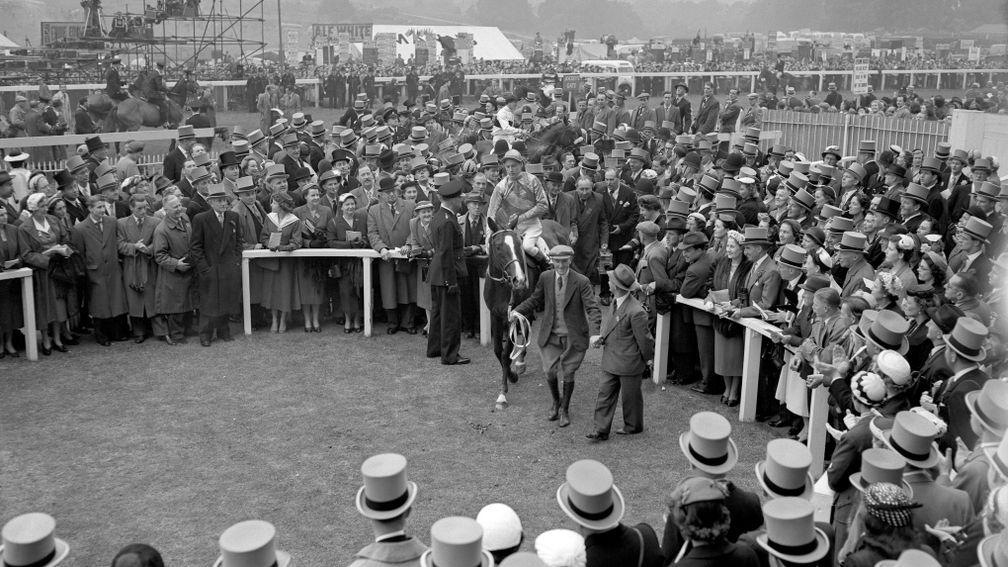
It was the first entry on an incomparable roll of honour – nine Derbys, a record 30 British Classics in all – but in the short time that Lester had been riding he had made enemies in high places, with disapproval evinced by senior figures of the sport who thought him brash, disrespectful and dangerous. He had already served several suspensions, generally for careless riding, and it is distinctly possible the top brass were simply waiting for a suitable opportunity to cut Piggott the tall poppy down to size. Two weeks later, they seized upon it.
Never Say Die reappeared in the King Edward VII Stakes at Royal Ascot, which is where things turned ugly. He was second favourite, the Derby runner-up and market leader Arabian Night having an 8lb pull, but was still strongly fancied to add the 'Ascot Derby' to his Epsom laurels. It was a very rough race, a great deal happening in the short home straight.
As the field turned for home, with Blue Prince II and Arabian Night leading the way, those in behind prepared to deliver their challenges. Sir Gordon Richards, riding Rashleigh, came round the bend with two horses between him and the rail – Garter (ridden by Lester's cousin Bill Rickaby) and Dragon Fly (Doug Smith). Lester and Never Say Die were just behind.
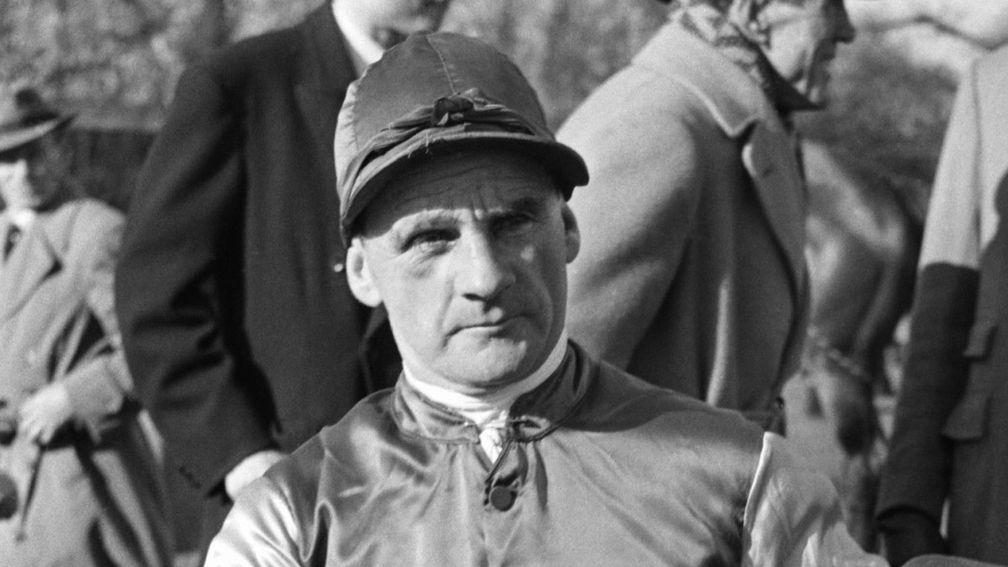
As they straightened up Rashleigh came slightly wide, as did Garter next to him, and space was created on the inside. Lester spied a gap between Garter and Dragon Fly and drove Never Say Die into it, making a line of four. Just at that moment Richards tried to correct the drifting Rashleigh by pulling him back towards the rail, and in so doing he came across Garter, bumping him hard more than once.
Never Say Die, who habitually lugged to the left, did so again under pressure and bumped Garter on his other side. Thus Garter was the meat in a Never Say Die-Rashleigh sandwich until Richards pulled Rashleigh away from his rival, and from that point to the line all three horses kept straight. Victory went to Rashleigh, with Never Say Die a fading fourth.
The stewards noted these events and called an objection against Richards. There were no head-on cameras in that era, but after the stewards had reviewed the film of the race it was considered (correctly) that Richards was to blame for the bumping.
However, when they heard from the other riders that Piggott had compounded the problem, failing to prevent Never Say Die's left-leaning bias, they removed the blame entirely from Richards and pinned it on Lester. The stewards placed greatest credence on the testimony of Richards, whose subjective account left no room for shades of grey.
He blamed Piggott for allowing Never Say Die to bump Garter, who then apparently cannoned into Rashleigh on two occasions. Lester's statement indicated otherwise, yet who among these lawmen would take the word of this feckless young devil over that of the saintly, revered Richards?
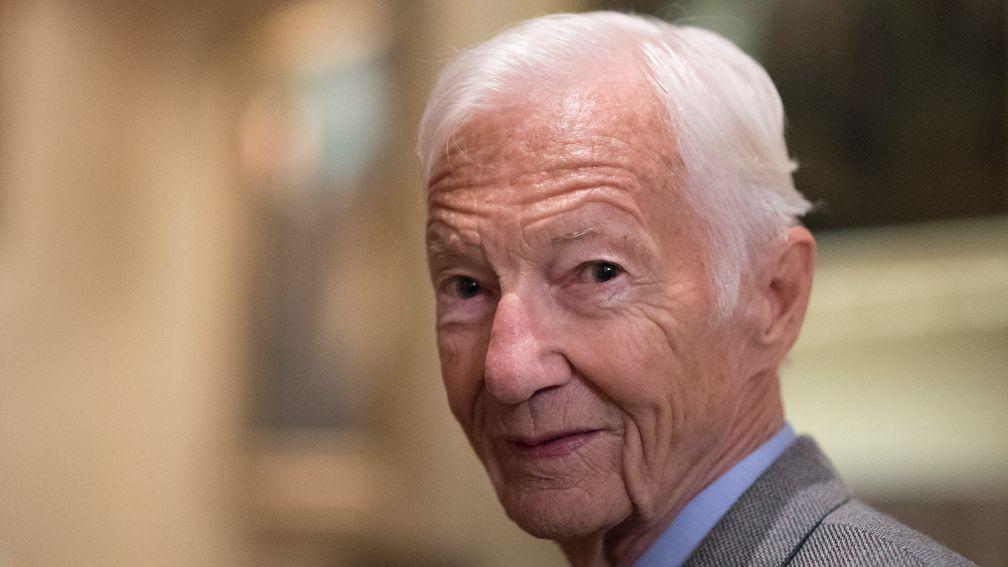
The Ascot stewards suspended Lester for the rest of the meeting and reported him to the stewards of the Jockey Club. The following morning a 20-minute inquiry – or rather an assizes – was held during which three Jockey Club stewards upheld the notion that any interference was caused solely by Never Say Die. In their opinion, Lester should not have moved forward as he did, intimating that he had relied on the good nature of the other jockeys to let him through.
They stripped Lester of his licence and set no time limit on his sentence, suggesting he might consider reapplying after six months. Furthermore, in an act of astonishingly petty vindictiveness, he was also required to leave home and work away from his father Keith's yard. The verdict was received by Lester with barely stifled fury and by the racing public with vociferous outrage.
"It's different now," said Lester years later. "Stewards these days will listen to you and understand what you say. It's a different generation.
"What they did to me was unfair and ridiculous. I had to leave home and live with my aunt and uncle."
And so, finally, the bad. Lester went to work for Jack Jarvis in Newmarket – he expressed his feelings on the situation in typically terse style, saying it was "bloody hard labour and less than a fiver a week while serving it" – and his suspension meant he missed the ride on Never Say Die in the St Leger, which the colt won by a record 12 lengths in the hands of Charlie Smirke.
As the months passed a degree of common sense prevailed and in late September – by which time, coincidentally or not, Richards had retired – the Jockey Club informed Lester that he could reapply for his licence. This he did, and his request was granted. His first ride back, at Newmarket, was a winner.
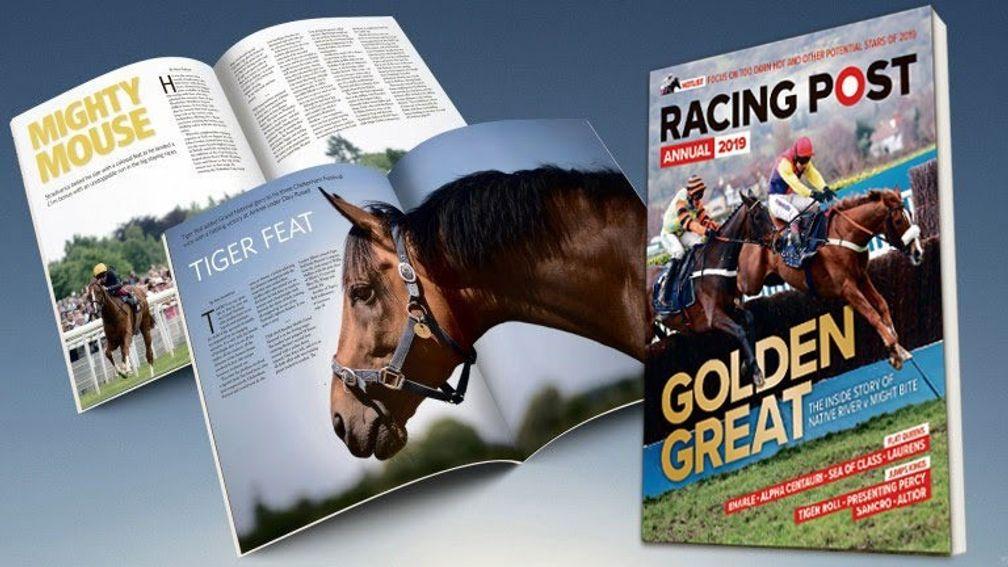
Look back on the best jumps action of the year in the new edition of the Racing Post Annual. Click here to order or call 01933 304858
Published on 4 January 2019inSeries
Last updated 17:48, 4 January 2019
- We believed Dancing Brave could fly - and then he took off to prove it
- 'Don't wind up bookmakers - you might feel clever but your accounts won't last'
- 'There wouldn't be a day I don't think about those boys and their families'
- 'You want a bit of noise, a bit of life - and you have to be fair to punters'
- 'I take flak and it frustrates me - but I'm not going to wreck another horse'
- We believed Dancing Brave could fly - and then he took off to prove it
- 'Don't wind up bookmakers - you might feel clever but your accounts won't last'
- 'There wouldn't be a day I don't think about those boys and their families'
- 'You want a bit of noise, a bit of life - and you have to be fair to punters'
- 'I take flak and it frustrates me - but I'm not going to wreck another horse'